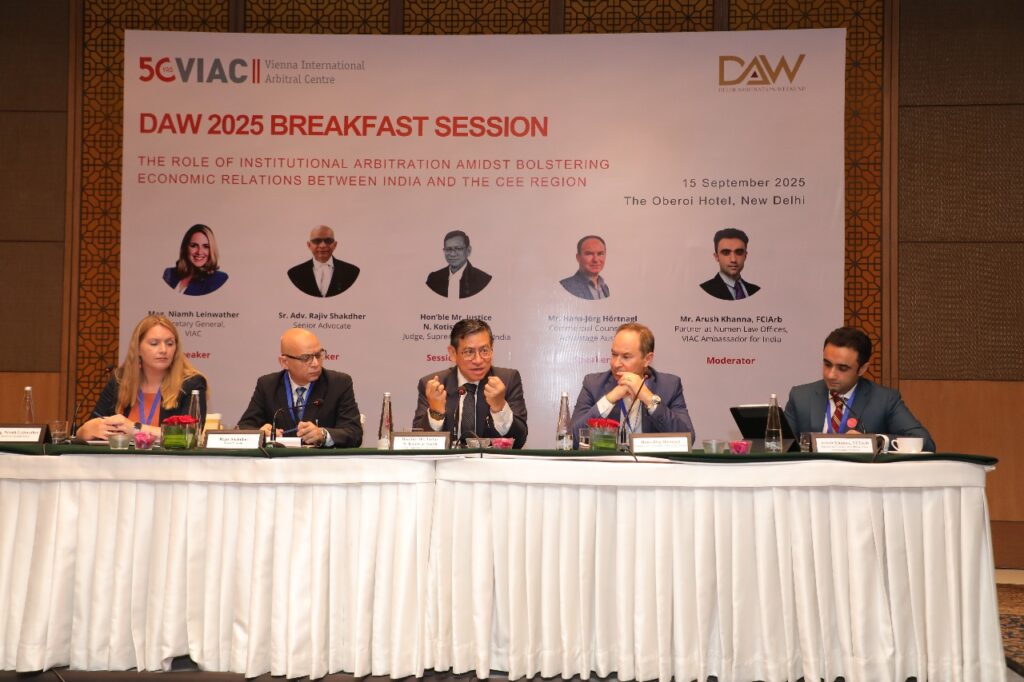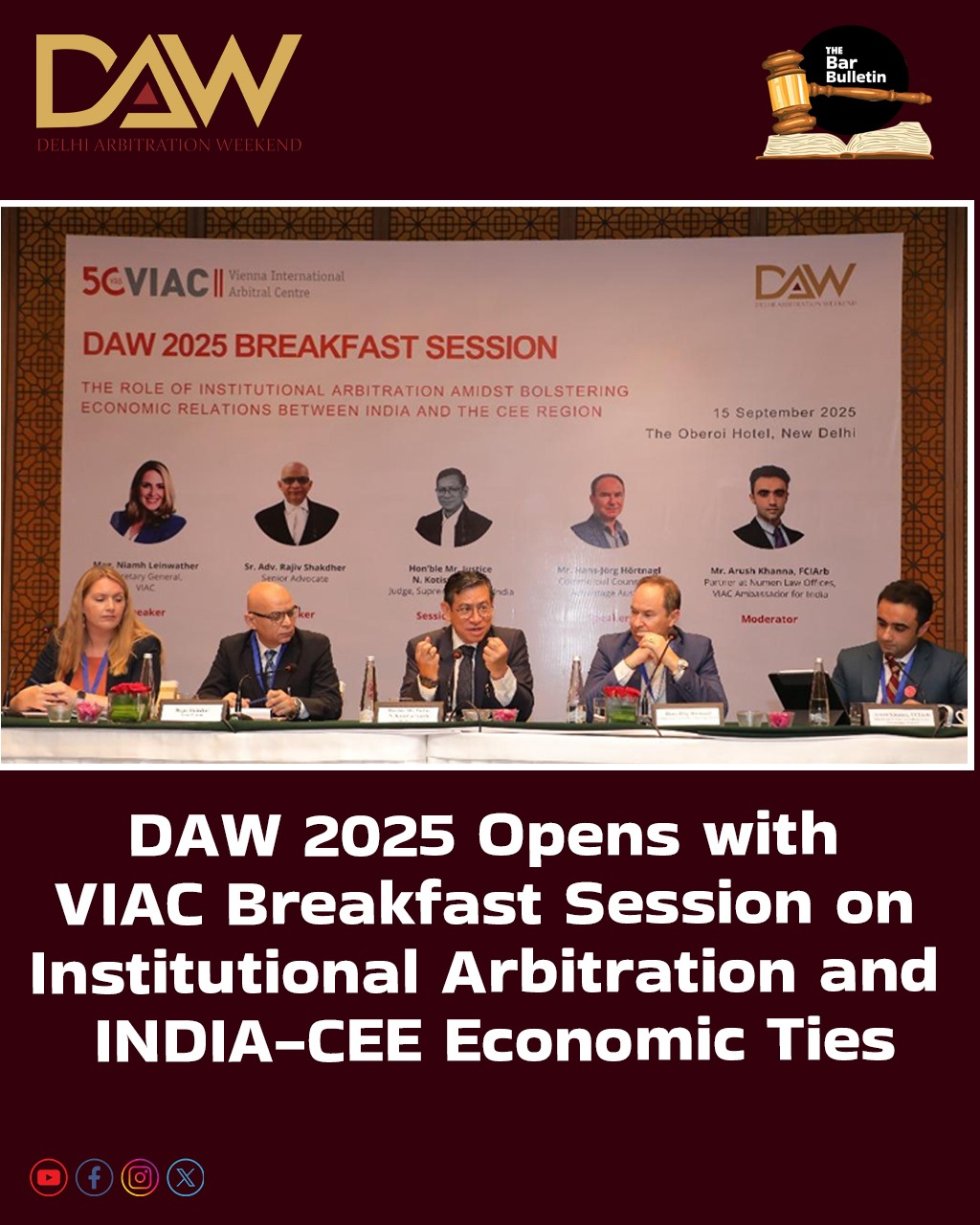The Delhi Arbitration Weekend (DAW) 2025 commenced with a breakfast session hosted by the Vienna International Arbitral Centre (VIAC) on the theme “Role of Institutional Arbitration Amidst Bolstering Economic Relations between India and the CEE Region.” The session brought together eminent members of the judiciary, corporate representatives, and international arbitration experts to deliberate on how institutional arbitration can anchor stronger commercial ties between India and Central & Eastern Europe.
The session was chaired by Hon’ble Mr. Justice N. Kotiswar Singh, Judge, Supreme Court of India. The distinguished speakers included Mag. Niamh Leinwather, Secretary General, VIAC; Mr. Hans-Jörg Hörtnagl, Commercial Counsellor, Advantage Austria; and Mr. Rajiv Shakdher, Senior Advocate. The session was moderated by Mr. Arush Khanna, Partner, Numen Law Offices and VIAC Ambassador for India.

Justice Singh remarked that while the Indian judiciary has historically assumed a proactive role, arbitration requires minimal judicial interference, particularly in matters of foreign award enforcement. He cautioned against an expansive reading of “public policy,” noting that only violations of fundamental law could justify interference, in line with precedents such as Vijay Karia (2020).
Mr. Hörtnagl underlined the economic backdrop, stating that trade between India and the European Union has increased by 90 percent over the past decade, with Austria–India bilateral trade expected to reach €3 billion this year.
Mr. Shakdher addressed recurring complexities around the choice of seat and venue in arbitration, observing that recent rulings of the Supreme Court have introduced greater consistency. He added that Indian courts have adopted a more pro-enforcement stance, while the Reserve Bank of India has also shown a facilitative approach by supporting enforcement even where foreign exchange outflows are involved.
Ms. Leinwather emphasized that parties selecting a seat expect neutrality and minimal interference. She highlighted Vienna’s longstanding civil law framework, independent judiciary, and arbitration-friendly environment, while also drawing attention to the emerging debate around the responsible use of AI in arbitration.
As moderator, Mr. Khanna stressed the significance of building bridges between India and Europe through arbitration. He observed that institutional arbitration ensures predictability and neutrality, both of which are crucial for international investors. In his role as VIAC Ambassador for India, he called the session “a step forward in positioning India as a trusted jurisdiction aligned with global best practices.”
The session underscored that India’s arbitration jurisprudence is evolving toward greater predictability, minimal judicial intervention, and global alignment, with landmark decisions such as BALCO and Vijay Karia reinforcing this trajectory.
The inaugural DAW session set the tone for the weekend by reaffirming India’s commitment to institutional arbitration as a pillar of international economic cooperation.



